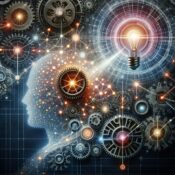The field of artificial intelligence (AI) continues to evolve at a rapid pace, with groundbreaking innovations emerging across various sectors. As reported by ScienceDaily, recent advancements have demonstrated the potential for AI to revolutionize industries from healthcare to finance, and beyond. Here, we delve into the latest developments that are shaping the future of AI and transforming the way we live and work.
One of the most notable advancements highlighted is the integration of AI in medical diagnostics. Researchers have developed AI systems capable of analyzing medical images with remarkable accuracy, often surpassing human experts. These systems can detect early signs of diseases such as cancer, enabling timely interventions and improving patient outcomes. The implementation of AI in medical diagnostics is not just a glimpse into the future but a current reality that promises to enhance the precision and efficiency of healthcare services.
Moreover, the finance sector is witnessing a significant impact from AI technologies. AI-driven algorithms are now being employed to perform complex data analyses, predict market trends, and manage financial risks. These intelligent systems can process vast amounts of data at unprecedented speeds, providing investors with insights that were previously unattainable. The automation of trading and asset management is becoming increasingly sophisticated, thanks to AI, which is streamlining operations and optimizing financial strategies.
Another exciting development is the use of AI in environmental conservation. AI models are being utilized to monitor wildlife populations, track illegal activities such as poaching, and predict environmental changes. Advanced AI algorithms can analyze data from satellite images, drones, and sensors to provide actionable insights for conservation efforts. This innovative application of AI is crucial in addressing some of the most pressing environmental challenges of our time.
Education is another area where AI is making significant strides. Intelligent tutoring systems are being designed to offer personalized learning experiences, adapting to the individual needs of students. These systems can identify knowledge gaps, tailor educational content, and provide real-time feedback, thereby enhancing the learning process. The integration of AI in education is paving the way for more effective and inclusive learning environments.
As AI continues to advance, ethical considerations and responsible development remain imperative. Researchers and developers are increasingly focusing on creating AI systems that are transparent, fair, and accountable. The establishment of ethical guidelines and regulatory frameworks is essential to ensure that AI technologies are deployed in ways that benefit society as a whole.
In conclusion, the transformative power of AI is evident across multiple domains. From healthcare and finance to environmental conservation and education, AI is driving innovation and delivering solutions that were once thought impossible. As we continue to harness the potential of AI, it is crucial to prioritize ethical practices and ensure that the benefits of these technologies are accessible to all. The future of AI is not just about technological advancement, but also about creating a better, more equitable world.




Recent Comments